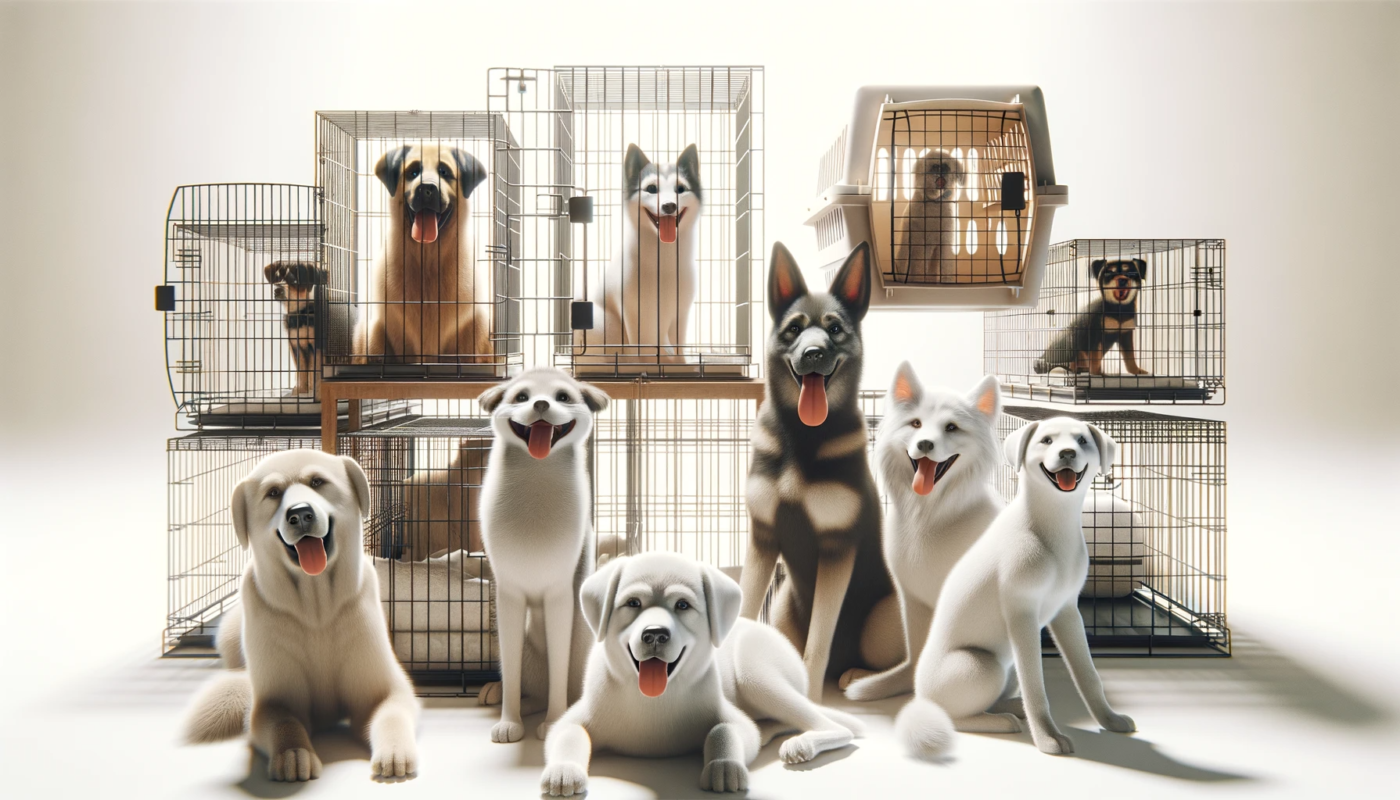Discover the Advantages of Crate Training for Puppies
This image is property of images.unsplash.com.
Find products like these on Amazon!
Why Should You Consider Crate Training Your Puppy?
When it comes to training your new furry friend, crate training often comes up as a popular option. Not only does it help with housebreaking, but it also provides a safe and secure space for your puppy to relax in. Plus, crate training can be highly beneficial for your puppy’s overall well-being and development.
Benefits of Crate Training for Puppies
Crate training can have a positive impact on your puppy’s behavior, potty training, and safety. It helps establish boundaries, creates a sense of security, and aids in preventing destructive behavior due to anxiety or boredom.
Creating a Positive Association with the Crate
One of the keys to successful crate training is to make the crate a positive space for your puppy. You can do this by introducing the crate gradually, using treats and praise, and never using it as a form of punishment. By making the crate a happy place, your puppy will be more likely to see it as their safe haven.
How to Introduce Your Puppy to the Crate
Start by placing the crate in a common area of your home and leaving the door open with a soft blanket inside. Encourage your puppy to explore the crate on their own, and reward them with treats when they go inside. Slowly work your way up to closing the door for short periods, always providing positive reinforcement.
Find products like these on Amazon!
Using the Crate for Housebreaking
Crate training can be a valuable tool when it comes to housebreaking your puppy. Dogs have a natural instinct to keep their den clean, so the crate can help encourage them to hold their bladder and bowels until they are taken outside. This can lead to fewer accidents in the house and a quicker potty training process.
Establishing a Routine for Potty Breaks
To ensure successful housebreaking with crate training, it’s important to establish a consistent routine for taking your puppy outside. Take them out first thing in the morning, after meals, and before bedtime. Use a specific command like “go potty” to help them associate that particular action with going outside.
Preventing Destructive Behavior
Puppies are known for their playful and sometimes mischievous behavior, which can lead to destructive habits like chewing on furniture or shoes. Crate training can help prevent these behaviors by providing a safe space for your puppy when you can’t supervise them. It also gives them a designated area to retreat to when they need some downtime.
Using the Crate for Timeouts
If your puppy is exhibiting unwanted behavior, such as biting or excessive barking, you can use the crate as a timeout space. Placing them in the crate for a brief period can help them calm down and understand that their behavior is not acceptable. Make sure to always stay calm and avoid using the crate as a form of punishment.
This image is property of images.unsplash.com.
Building a Strong Bond with Your Puppy
Crate training can strengthen the bond between you and your puppy by creating a sense of trust and security. When your puppy feels safe in their crate, they are more likely to view you as a source of comfort and protection. This can lead to a deeper connection and a more positive relationship between you and your furry companion.
Using Crate Training for Sleep
Puppies need plenty of rest to support their growth and development, so having a cozy crate for them to sleep in can be highly beneficial. Make the crate comfortable with soft bedding, toys, and a familiar scent to help your puppy feel relaxed and secure. This will not only ensure a good night’s sleep for your puppy but also for you.
Traveling and Crate Training
Crate training can also be advantageous when it comes to traveling with your puppy. Whether you’re going on a road trip or visiting the vet, having a crate-trained puppy can make the experience more comfortable for both of you. Your puppy will have a familiar space to retreat to in unfamiliar environments, reducing stress and anxiety.
Making the Crate a Safe Haven
When traveling with your puppy, the crate can serve as a safe haven in potentially stressful situations. Whether you’re staying in a hotel room or waiting at the vet’s office, your puppy will have a familiar and secure space to relax in. Remember to bring along their favorite toys and treats to make the experience more enjoyable for them.
This image is property of images.unsplash.com.
Gradually Transitioning Away from the Crate
While crate training can provide numerous benefits for your puppy, it’s essential to transition them away from the crate gradually once they are old enough and trustworthy. This process should be done with care and patience to ensure that your puppy continues to feel secure and comfortable in their new environment.
Creating a Safe Room for Your Puppy
As you begin to transition your puppy away from the crate, consider creating a safe room in your home where they can still have some confinement and boundaries. Use baby gates or pens to section off a designated area with their bed, toys, and water bowl. This will help your puppy adjust to having more freedom while still feeling secure.
Conclusion
Crate training can offer a wide range of benefits for both you and your puppy, from aiding in potty training to preventing destructive behavior. By creating a positive association with the crate and using it as a tool for housebreaking and travel, you can help your puppy feel safe and secure while strengthening your bond. Remember to approach crate training with patience and consistency to ensure a successful and fulfilling experience for both you and your furry friend.
Find products like these on Amazon!




-
-
1 month
Tagged Crate training, Dog behavior, Separation anxiety